Healthy Vegetables to Eat for Faster Weight Loss
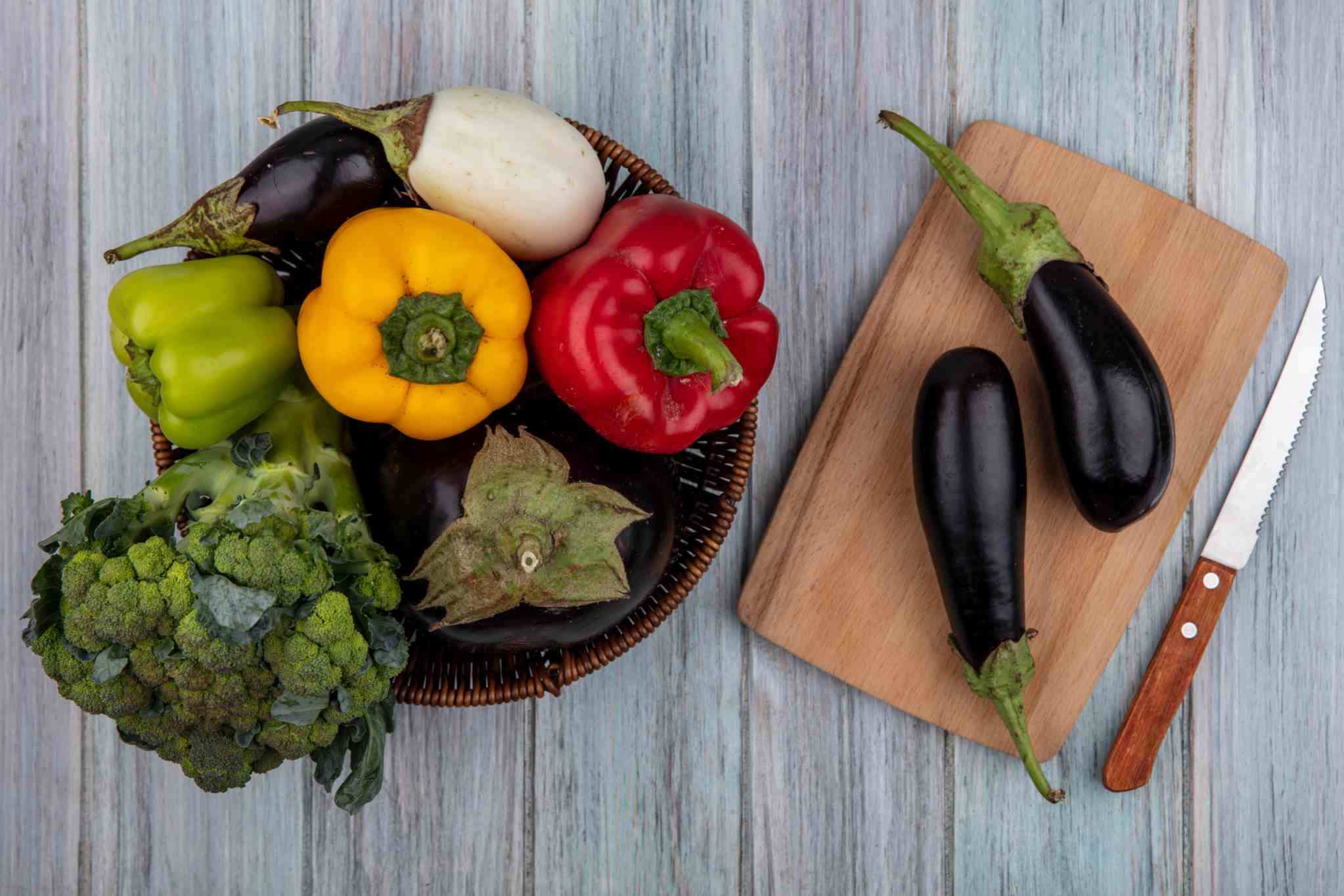
Did you know vegetables can significantly aid us in our journey of weight loss?
These nutrient-dense foods are low in calories and high in fibre, which helps control the urge to snack every time. Additionally, the high water content in these vegetables increases food intake, keeping you fuller for longer and helping you manage your weight effectively.
Including various vegetables for your diet can ensure a healthy and balanced approach to losing weight. Keep reading to discover the best vegetables for weight loss and how they can benefit your health.

Table of Contents

15 Best Vegetables for Weight Loss
You can begin your journey towards a perfectly toned body by including these vegetables for weight loss.
Have a look!
1. Spinach and Leafy Vegetables
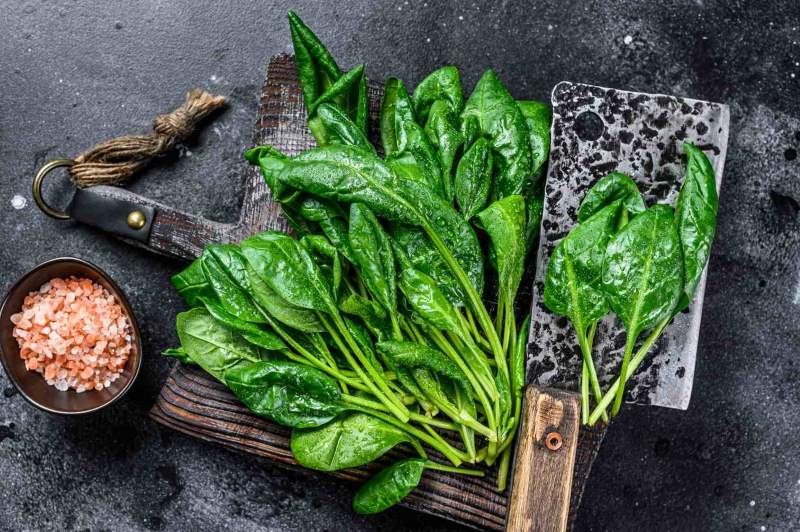
Spinach and other leafy vegetables like lettuce, kale, etc., help burn belly fat. It contains magnesium and vitamin E that supports metabolism and protects the immune system. Since these vegetables are low in calories and carbohydrates, an individual can lose weight easily. Adding blanched or cooked spinach to the diet will be beneficial in burning fat quickly.
Nutrition Values:
- Calories: 23 per 100g
- Fibre: 2.2g
- Vitamin A: 469% of RDI
- Vitamin C: 47% of RDI
- Iron: 15% of RDI
How Spinach and Leafy Vegetables Help Lose Weight?
- Spinach and leafy vegetables are low in calories but high in essential nutrients like vitamins A and C, which support metabolism and immune function.
- Their high fibre content aids in digestion and promotes a feeling of fullness, helping to control appetite and reduce overall calorie intake.
2. Cauliflower

Cauliflower is rich in fibre and vitamin B that boosts immunity. It contains phytochemicals that protect the body from cancer and support weight loss. Additionally, cauliflower contains the antioxidant sulforaphane that removes the free radicals from the body. This cruciferous vegetable is quite filling, which prevents an individual from junk eating.
Nutrition Values:
- Calories: 25 per 100g
- Fibre: 2g
- Vitamin C: 77% of RDI
- Vitamin B6: 11% of RDI
- Folate: 14% of RDI
How Cauliflowers Help Lose Weight?
- Cauliflower is low in calories but rich in fibre, vitamins, and minerals, making it a valuable addition to a weight loss diet.
- Its high fibre content aids in digestion and promotes satiety, helping to reduce overall calorie intake.
3. Mushrooms

Many individuals love consuming mushrooms. These fungi contain low calories, which is perfect for weight loss needs. They are known to burn fat or promote weight loss by regulating the excess glucose level in the body. Moreover, they are rich in protein and fibre that helps in improving metabolism.
Nutrition Values:
- Calories: 22 per 100g
- Fibre: 1g
- Protein: 3.1g
- Vitamin D: 33% of RDI
- Selenium: 9% of RDI
How Mushrooms Help Lose Weight?
- Mushrooms are low in calories but rich in protein and fibre, making them a filling and satisfying addition to meals.
- Their high fibre content helps promote satiety and reduce overall calorie intake, while their protein content supports muscle maintenance and metabolism, making them an excellent choice for those looking to lose weight.
4. Pumpkin

Pumpkins are also high in fibre but low in calories, making them an ideal vegetable for weight loss. You can add it to the salads or make smoothies to enjoy with your breakfast. Many love eating balanced pumpkins as a side dish to support weight loss.
Nutrition Values:
- Calories: 26 per 100g
- Fibre: 0.5g
- Vitamin A: 170% of RDI
- Vitamin C: 15% of RDI
- Potassium: 7% of RDI
How Pumpkin Helps Lose Weight?
- Pumpkin is low in calories but high in fibre, making it a filling and satisfying food choice for weight loss.
- Its high fibre content helps promote satiety and reduce overall calorie intake, while its rich vitamin and mineral content supports metabolism and overall health, making it an excellent addition to a weight loss diet.
5. Carrots

Carrots look appetising in every dish. This vegetable is loaded with vitamin A and beta carotene, which helps lower blood sugar levels. Carrots contain low calories, which makes them ideal for a weight loss diet. Moreover, the soluble and insoluble fibre content supports the weight loss goals. You can eat carrots raw as they are sweet in taste or blend them into a smoothie. Many love stir-frying carrots and add them to meat dishes.
Nutrition Values:
- Calories: 41 per 100g
- Fibre: 2.8g
- Vitamin A: 334% of RDI
- Vitamin K: 13% of RDI
- Potassium: 10% of RDI
How Carrots Help Lose Weight?
- Carrots are low in calories but high in fibre, making them a filling and satisfying food choice for weight loss.
- Their high fibre content helps promote satiety and reduce overall calorie intake, while their rich vitamin and mineral content supports metabolism and overall health.
6. Asparagus

Asparagus is an exotic vegetable that helps in burning fat. It contains folate, fibre, and vitamins like A, K and C. It contains a chemical or alkaloid asparagine which acts on the cells and breaks down the fat. You can enjoy a healthy treat of roasted asparagus or add it to soups. Blending it into dips or stir-frying them also impresses the palate.
Nutrition Values:
- Calories: 20 per 100g
- Fibre: 2.1g
- Vitamin A: 20% of RDI
- Vitamin C: 9% of RDI
- Folate: 13% of RDI
How Asparagus Help Lose Weight?
- Asparagus is low in calories but high in fibre, making it a filling and satisfying food choice for weight loss.
- Its high fibre content helps promote satiety and reduce overall calorie intake, while its rich vitamin and mineral content supports metabolism and overall health, making it an excellent addition to a weight loss diet.
7. Cucumbers
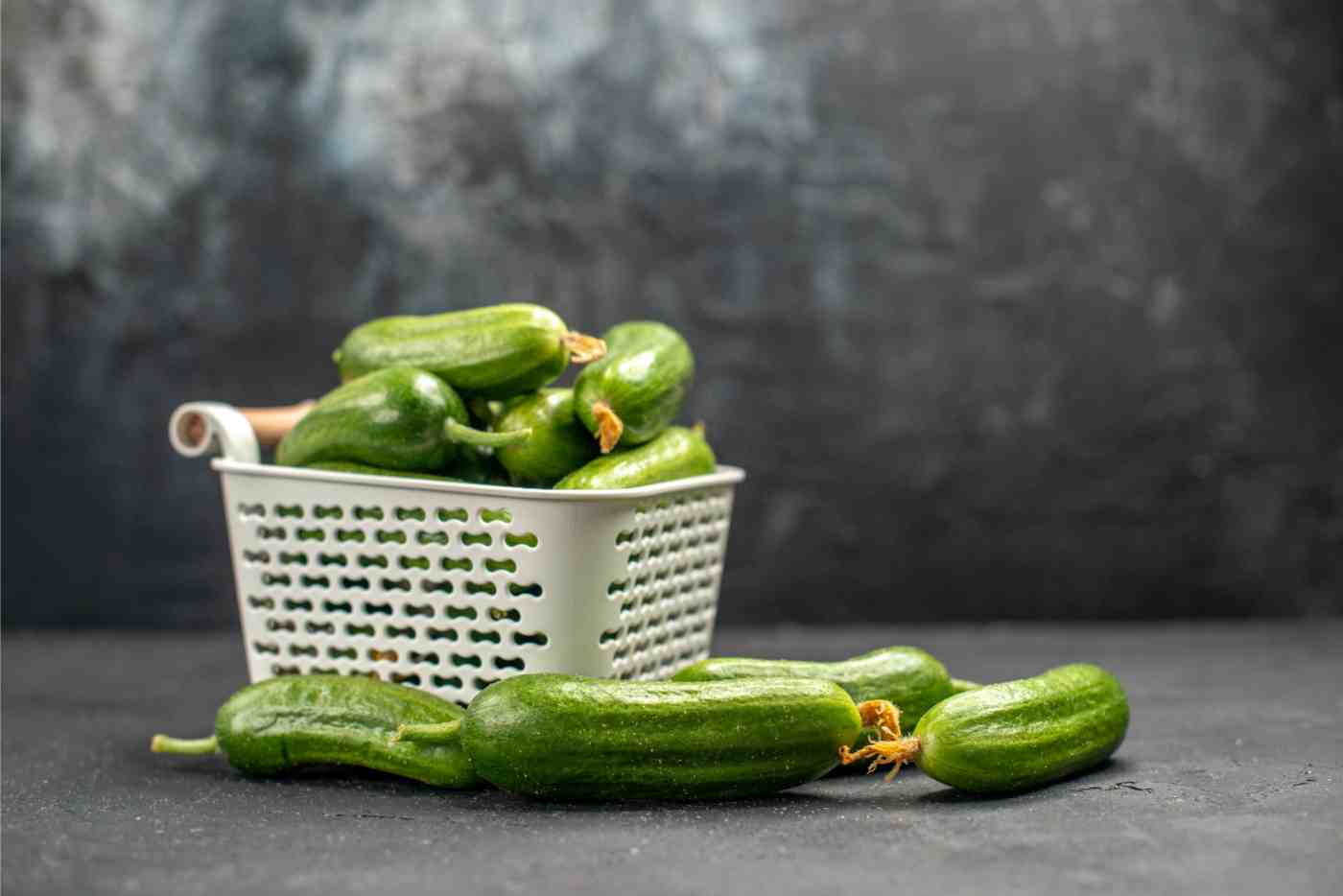
Cucumbers 96% water that helps in keeping the body hydrated. They contain detoxifying elements that remove the harmful radicals harming the cell. The fibre content keeps the body filled up and eliminates the desire to eat often.
Nutrition Values:
- Calories: 16 per 100g
- Fibre: 0.5g
- Vitamin K: 16% of RDI
- Vitamin C: 4% of RDI
- Potassium: 4% of RDI
How Cucumbers Help Lose Weight?
- Cucumber's high water content keeps you hydrated and full, while its low calorie and fibre content supports weight loss goals.
8. Broccoli

Broccoli is a cruciferous vegetable rich in fibre and protein, making it great for weight loss. Its high content of vitamins C, K, and A supports metabolism and overall health. Eating steamed or roasted broccoli can help you stay full longer.
Nutrition Values:
- Calories: 34 per 100g
- Fibre: 2.6g
- Vitamin C: 135% of RDI
- Vitamin K: 116% of RDI
- Potassium: 8% of RDI
How Broccoli Help Lose Weight?
- Broccoli's combination of fibre, vitamins, and minerals supports metabolism and aids in digestion, making it an excellent choice for weight loss.
9. Bell Peppers
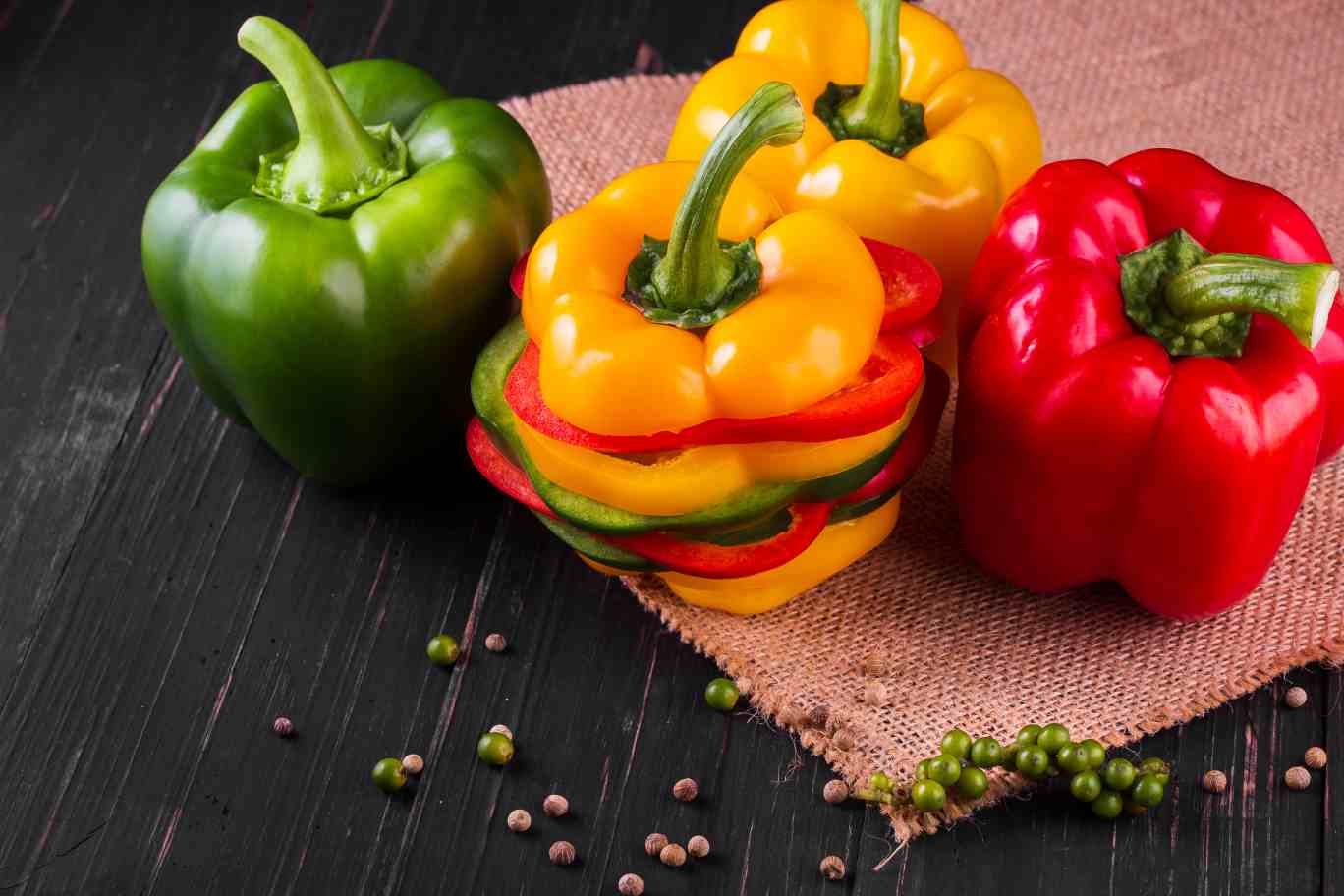
Bell peppers are low in calories and rich in vitamins A and C. Their high fibre content helps you feel full, reducing the urge to snack. Add them to salads or stir-fries for a delicious and healthy meal.
Nutritional Values:
- Calories: 20 per 100g
- Fibre: 1.7g
- Vitamin C: 200% of RDI
- Vitamin A: 11% of RDI
- Potassium: 5% of RDI
How Bell Peppers Help Lose Weight?
- Bell peppers aid weight loss by being low in calories and high in fibre, helping you feel full for longer periods, and thus reducing overall calorie intake.
- Their rich vitamin content supports metabolism, while their versatility allows for easy inclusion in various dishes.
10. Zucchini

Zucchini is low in calories and high in fibre, which aids digestion and weight loss. Its high water content keeps you hydrated and satisfied. You can enjoy zucchini grilled, in salads, or as a pasta substitute.
Nutrition Values:
- Calories: 17 per 100g
- Fibre: 1g
- Vitamin C: 28% of RDI
- Vitamin A: 4% of RDI
- Potassium: 8% of RDI
How Zucchini Help Lose Weight?
- Zucchini supports weight loss due to its low calorie and high fibre content, promoting satiety and aiding in digestion.
- Its versatility allows for easy incorporation into various dishes, making it a staple for those seeking to shed pounds.
11. Brussels Sprouts
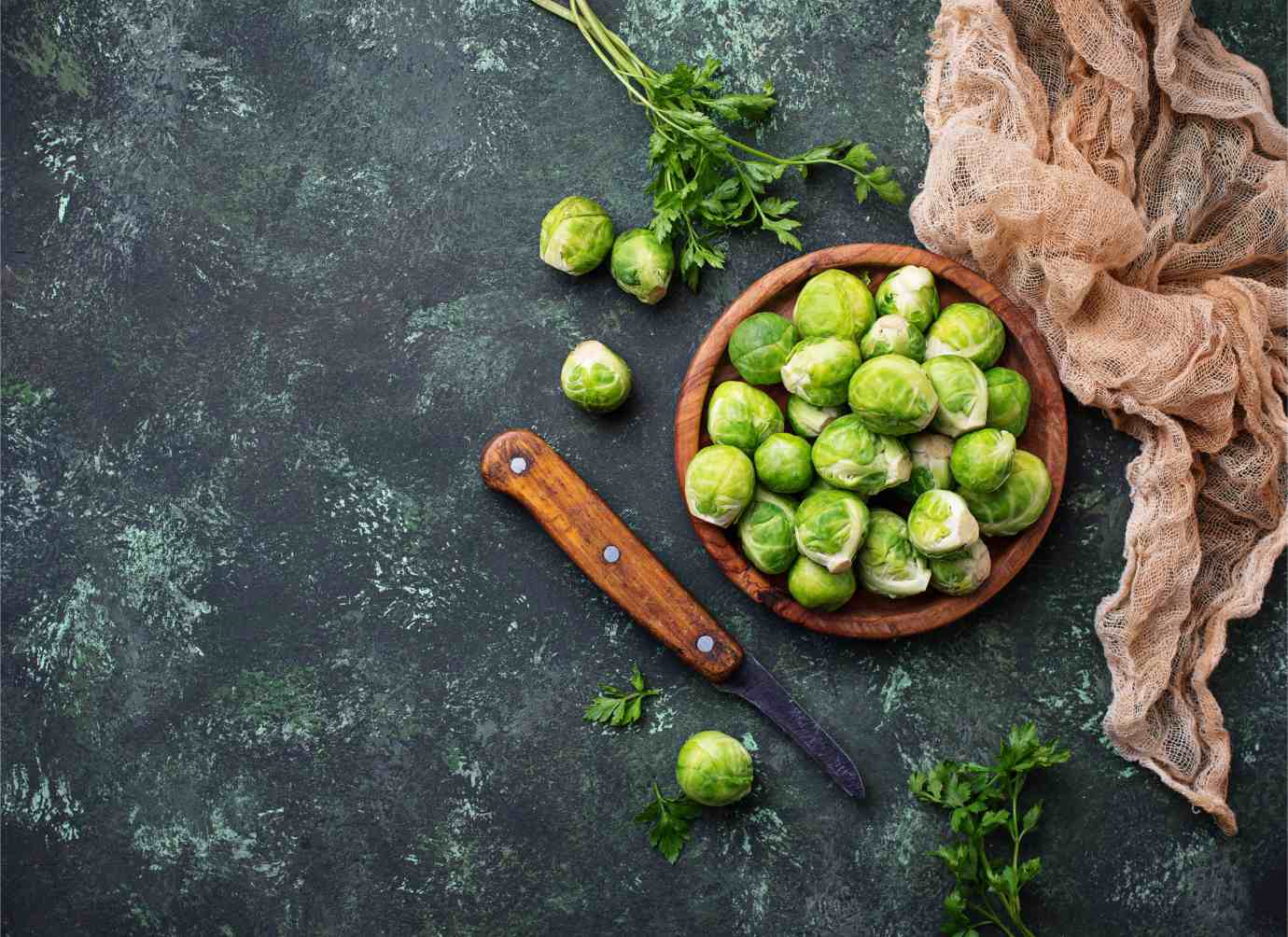
Brussels sprouts are rich in fibre, vitamins C and K, and antioxidants. They promote satiety and help in weight management. Roasting or steaming Brussels sprouts can make a nutritious addition to your diet.
Nutritional Values:
- Calories: 43 per 100g
- Fibre: 3.8g
- Vitamin C: 142% of RDI
- Vitamin A: 15% of RDI
- Potassium: 8% of RDI
How Brussels Sprouts Help Lose Weight?
- Brussels sprouts aid weight loss by being rich in fibre and low in calories, promoting a feeling of fullness and reducing overall calorie intake.
- Their high vitamin and antioxidant content supports metabolism and overall health, making them a valuable addition to any weight loss diet plan.
12. Green Beans
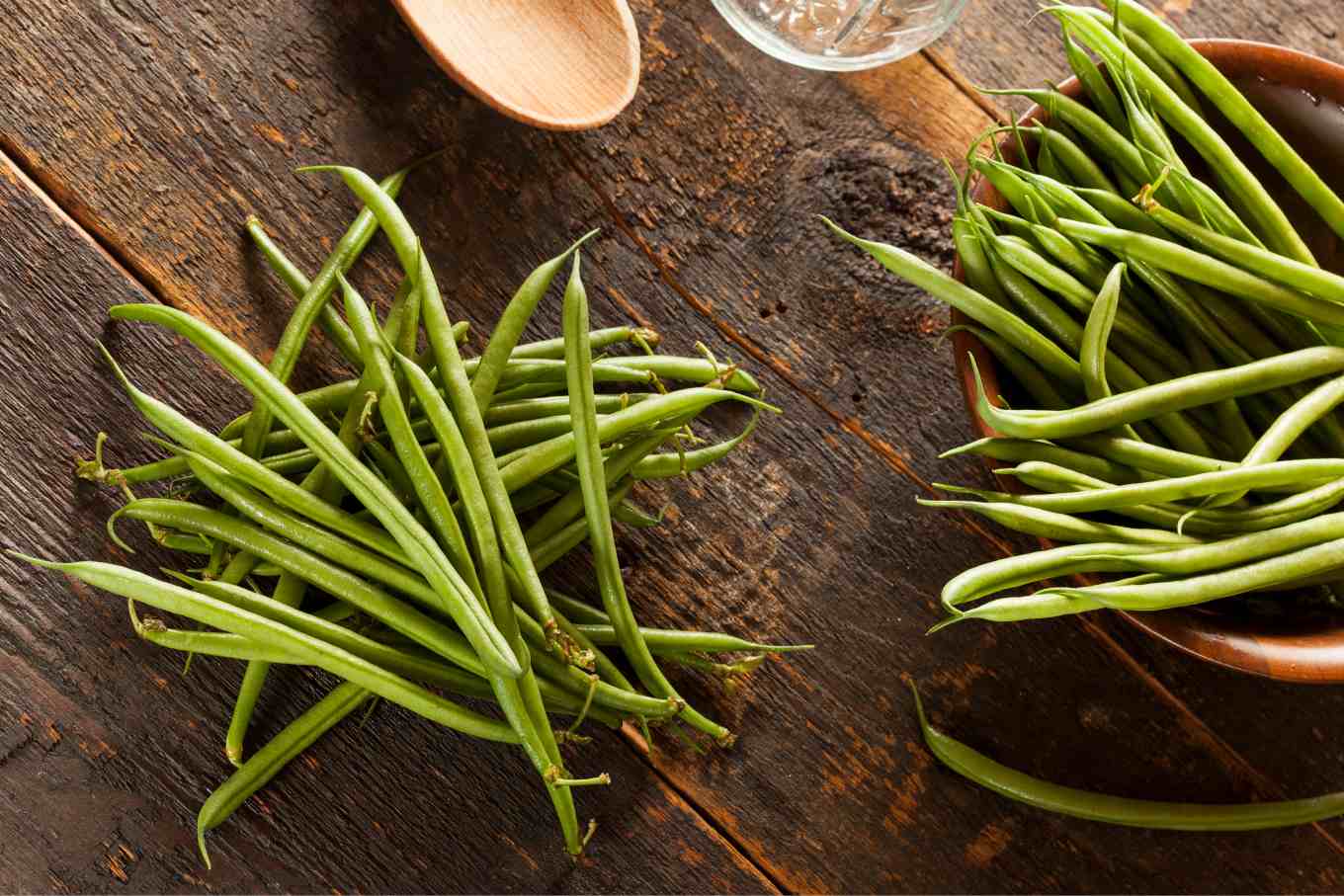
Green beans are low in calories and high in fibre, making them perfect for weight loss. They are also a good source of vitamins A, C, and K. Incorporate them into your meals by steaming, sauteing, or adding them to casseroles.
Nutritional Values:
- Calories: 31 per 100g
- Fibre: 2.7g
- Vitamin C: 25% of RDI
- Vitamin A: 9% of RDI
- Potassium: 6% of RDI
How Green Beans Help Lose Weight?
- The combination of low calories and high fibre content in green beans promotes satiety and aids in digestion.
- Additionally, the vitamins and minerals they contain support overall health and metabolism.
13. Eggplant

Eggplant is low in calories and high in fibre, helping you stay full longer. Its antioxidants support overall health and metabolism. Enjoy eggplant grilled, baked, or as a healthy addition to your favourite dishes.
Nutritional Values:
- Calories: 25 per 100g
- Fibre: 3g
- Vitamin C: 3% of RDI
- Vitamin A: 0% of RDI
- Potassium: 5% of RDI
How Egg Plant Help Lose Weight?
- Eggplant's low calorie and high fibre content contribute to feelings of fullness and aid in digestion, making it a beneficial addition to a weight loss diet.
14. Celery

Celery is very low in calories and high in water content, making it an excellent choice for weight loss. Its high fibre content aids digestion and keeps you feeling full. Snack on celery sticks or add them to soups and salads for a healthy crunch.
Nutritional Values:
- Calories: 16 per 100g
- Fibre: 1.6g
- Vitamin C: 3% of RDI
- Vitamin A: 9% of RDI
- Potassium: 5% of RDI
How Celery Help Lose Weight?
- Celery supports weight loss due to its low calorie and high water content, promoting hydration and satiety.
- Its fibre content aids digestion and helps regulate appetite, making it an ideal snack option for those looking to shed pounds.
15. Cabbage

Cabbage is low in calories and packed with fibre, vitamins C and K, and antioxidants. It helps in weight management by promoting fullness and aiding digestion. Include cabbage in salads, soups, or stir-fries for a nutritious meal.
Nutritional Values:
- Calories: 25 per 100g
- Fibre: 2.5g
- Vitamin C: 54% of RDI
- Vitamin A: 2% of RDI
- Potassium: 5% of RDI
How Cabbage Help Lose Weight?
- Cabbage's combination of low calories, high fibre, and rich nutrient profile supports feelings of fullness aids in digestion.
- It promotes overall health, making it a valuable asset in weight loss efforts.
These vegetables contain fibre and nutrients, including essential vitamins and minerals that improve metabolism. Consuming a balanced diet that includes seasonal vegetables and fruits keeps the body active and may aid in preventing cardiovascular diseases. Moreover, vegetables are rich in antioxidants that protect cells from damage and eliminate harmful toxins from the body.
Why Should You Eat More Vegetables to Lose Weight?
Vegetables can be considered part of the Atkins Nutritional Approach, which keeps weight in check. An individual needs nearly 12 to 15 grams of carbohydrates daily. Eating salads and vegetables containing carbohydrates makes the diet nutritious and balanced.
Here are some reasons why an individual should eat vegetables for weight loss:
Vegetables are rich in fibres that keep an individual fuller for longer, removing the urge to eat junk food. Eating vegetables rich in protein and healthy fats keeps the brain active and uplifts the mood.
Vegetables also help prevent spikes in energy levels. They regulate the blood sugar level, which makes an individual lethargic.
A balanced diet rich in vegetables helps decrease the hardening of arteries. They help prevent inflammation and lower cholesterol levels. The nutrients in vegetables restrict the components of many degenerative diseases like heart disease, diabetes, obesity and Alzheimer's.
Vegetables have lower calorie content and keep an individual healthy and full for longer.
Moreover, the expense of junk and carbohydrate-rich food also decreases.
Tips to Lose Weight on a Vegetarian Diet
Transitioning to a vegetarian diet can be an effective way to shed those extra pounds. You can achieve weight loss goals with the right approach while enjoying various delicious and nutritious plant-based foods. Here are some tips to help you succeed:
- Embrace Whole Foods: Focus on whole, minimally processed plant foods like fruits, vegetables, whole grains, legumes, nuts, and seeds.
- Monitor Portion Sizes: Pay attention to portion sizes to avoid overeating, even with healthy foods. Use smaller plates and bowls to help control portion sizes.
- Include Protein-Rich Foods: Incorporate protein-rich foods like beans, lentils, tofu, tempeh, quinoa, and Greek yoghurt into your meals to ensure an adequate protein intake.
- Prioritise Fibre: Fibre-rich foods like fruits, vegetables, whole grains, and legumes promote feelings of fullness and aid in digestion, helping you stay satisfied for longer periods.
- Stay Hydrated: Drink plenty of water throughout the day to stay hydrated and support optimal metabolism. Choose water-rich foods like cucumbers, melons, and soups.
- Mindful Eating: Practice mindful eating by savouring each bite, chewing slowly, and paying attention to hunger and fullness cues. This can prevent mindless snacking and emotional eating.
Vegetables to Avoid When on a Weight Loss Diet
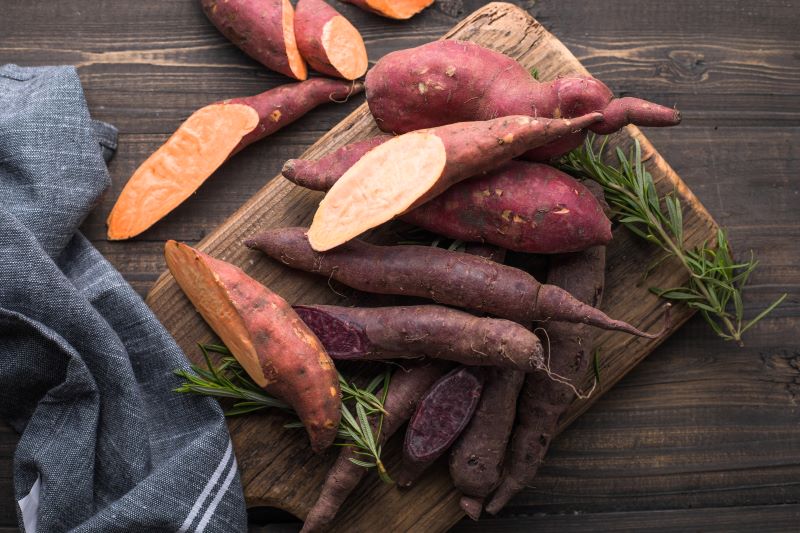
Before planning a diet comprising vegetables for weight loss, you must also note the vegetables to avoid. Researching on this topic will help individuals eliminate starchy vegetables, consuming which in excess can contribute to weight gain and obesity issues.
Here is a list of vegetables to avoid for weight loss needs:
Consuming vegetables for weight loss is beneficial for overall health management. However, an individual should consume them in a balanced proportion. Supporting this diet with exercise and eight hours of sleep will also increase its benefits.














